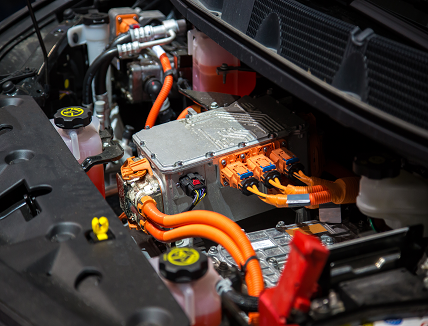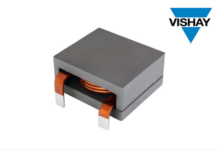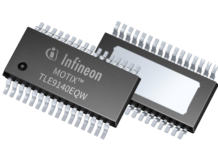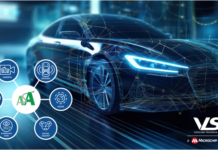
As the world strives towards sustainability and reducing carbon emissions, many people are looking for ways to make everyday activities more eco-friendly. One popular option is converting traditional gasoline-powered vehicles to run on electricity.
Electric car conversion involves retrofitting a conventional vehicle with an electric motor, battery, and other components to power it with electricity instead of fossil fuels. If you are interested in learning more, we’ve got you covered.
Let’s explore the basics of electric car conversion and consider the benefits and challenges involved in the process.
EV Conversion Laws
Before converting your car into an EV, it is important to consider and comply with the laws in your country. Laws and regulations regarding vehicle modifications vary by location, so it’s essential to do proper research. For example, electric car conversion UK law states that you must re-register your car when modifying it. You can do this via vehicle registration pages on the gov.uk website.
Here are some key factors to take care of and ensure your new ride meets essential safety regulations:
1. Ensure your car meets government safety requirements and get a valid MOT certificate.
2. Obtain insurance for your car and make sure the insurance policy reflects the conversion to electric power.
3. Register it with the DVLA as an alternative fuel vehicle.
4. Check if your converted car is eligible for lower road tax rates or exemptions, depending on its emissions and other factors.
Also, note that regulations and requirements may vary depending on the type of vehicle and other specific details. Overall, it is best to seek professional advice and guidance before attempting an electric car conversion in the UK.
The Goal of EV Conversions
Electric vehicle conversion refers to building an electric or hybrid vehicle by swapping out a car’s combustion engine and other parts with an electric motor and batteries. Most people perform EV conversions for environmental reasons. Since electric cars don’t produce greenhouse gas emissions, they’re a great way to reduce pollution.
Additionally, EV conversions help lessen the enormous waste produced when vehicles reach the end of their life cycles. Older vehicles are often discarded, creating a sizable amount of metal, plastic, and fabric waste. Since it requires a lot of energy and resources to recycle these parts into valuable materials, it’s a great idea to get thrifty, repurpose older vehicles and breathe new life into them.
The Technology Behind EV Conversions
Converting a gasoline car into an electric one typically involves removing the internal combustion engine and replacing it with an electric motor, battery pack, and other necessary components. Here are the key technologies involved in the process:
1. Electric motors are the heart of an electric car conversion. The motor is responsible for converting electrical energy from the battery into mechanical power to turn the wheels.
2. Battery packs store the electrical energy that powers the electric motor. Lithium-ion batteries are commonly used because of their high energy density, low weight, and long lifespan.
3. Chargers convert AC (alternating current) power from the electrical grid into DC (direct current) power that can be stored in the battery of an electric vehicle.
4. Controllers manage the flow of electrical energy from the battery pack to the motor and regulate speed and torque.
5. Power inverters convert the DC power from the battery pack into AC power to operate the electric motor.
6. Regenerative braking is a technology that allows the electric motor to act as a generator to recharge the battery pack during deceleration, which improves energy efficiency.
These components are integrated into the vehicle’s existing drivetrain, and the conversion process involves modifications to the suspension, braking, and cooling systems to ensure optimal performance and safety. Converting a gasoline car into an electric one requires careful planning and execution and is typically done by experienced professionals specializing in electric car conversions.
The Rise of the EV Conversion Industry
The EV conversion industry is growing within the broader electric vehicle market. It includes businesses and individuals who retrofit conventional gasoline-powered vehicles with electric motors, batteries, and other components to create zero-emission electric vehicles.
The industry gains momentum as more people seek ways to reduce their carbon footprint and transition to sustainable transportation options. While the market for electric car conversions is still relatively small compared to that of new electric vehicles, it will grow as technology advances, and more people become interested in this exciting concept.
Some of the key players in the industry include conversion kit suppliers, electric motor and battery manufacturers, and conversion specialists.
Making Modifications Possible: EV Conversion Kits
Electric car conversion kits are packages of components that allow professionals and DIY enthusiasts to convert traditional vehicles to electric power. Typically, these kits include an electric motor, battery pack, charger, controller, and other necessary components to retrofit a vehicle with an electric powertrain. Conversion kits can be customized to fit a wide range of vehicle models, from small cars to larger trucks.
Electric car conversion kits offer a more affordable alternative to purchasing a new electric vehicle. While the cost of a conversion kit varies depending on the type of car and the difficulty of the conversion, it is generally less expensive than buying a new electric vehicle.
EV conversion is a complex process and requires technical skill and knowledge. Properly installing all components is crucial for safety and optimal performance.
If you’re a dedicated car hobbyist with years of DIY experience, you can undertake the task of EV conversion with some help on the side. But, if you’re new to the game and interested in converting your car, it’s better to let professionals do their magic and complete the job for you.
The Pros and Cons of EV Conversions
The initial cost of EV conversions can be off-putting to people interested in this process. The most expensive part of an EV conversion is usually the battery pack, which can account for up to half of the total conversion cost. The cost of the battery pack depends on its size, capacity, and chemistry, with lithium-ion batteries being the most common and affordable option.
Furthermore, if you hire professionals, labor costs can also add to the total cost of conversion. However, despite the high initial cost, an EV conversion can provide long-term savings in fuel and maintenance costs. Electric vehicles have lower operating costs than gasoline-powered vehicles since electricity is generally less expensive than gasoline, and electric motors require less maintenance than internal combustion engines.
Revive Your Old Ride with Innovative Technology
While EV conversion takes time and effort, it can be a fun, experimental project for car lovers who are also passionate about preserving the environment. Now that you know more about this process, you can refresh your old machine and turn it into an electrical powerhouse.
Good luck!



















